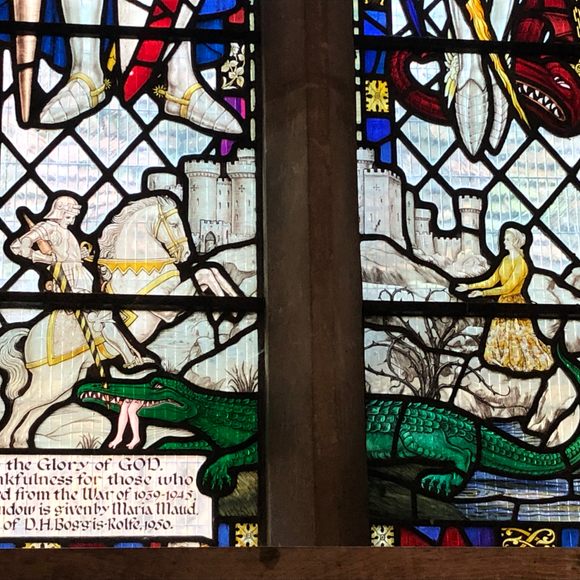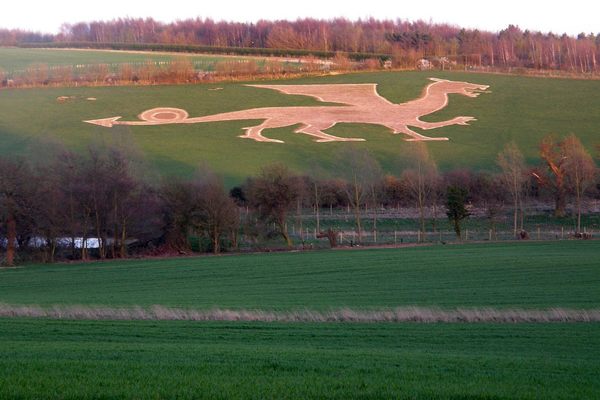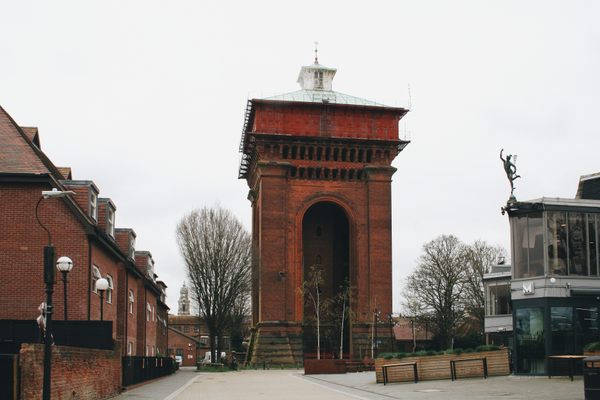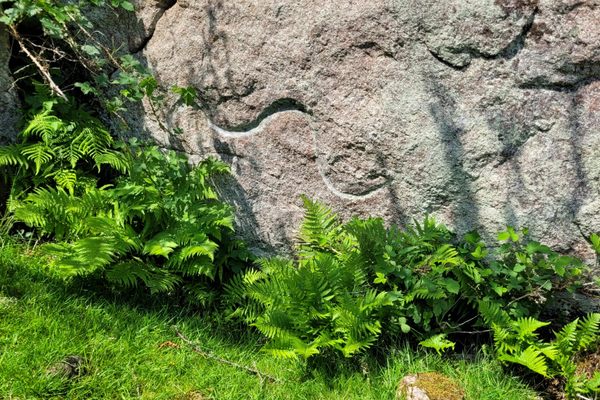AO Edited
The Wormingford Dragon Window
Was the ravaging reptilian that terrorized this village a dragon, or an escapee from a London menagerie?
Wormingford, in Essex, is believed to have gained its name following an encounter with a wyrm, a serpent or dragon, in the 13th century. The Wormingford legend parallels the tale told in neighboring Bures, where a dragon terrorized locals despite their attempts to pierce its hard scaly skin. Though local legends like these are commonplace throughout England, the neighboring sightings of Wormingford and Bures may well be rooted in the appearance of a genuinely strange and exotic monster.
In the early decades of the 13th century, King John established a royal menagerie at the Tower of London, which housed an array of curiosities and gifts from elephants to polar bears. But legend says that even earlier than this, Richard the Lionheart used the tower to keep a “cokadrille,” or crocodile, that had been a gift from King Saladin, sultan of Egypt and Syria. The reptile is said to have grown to monstrous proportions and, one summer’s day broke from its cage and slipped from view into the nearby Thames. With time and a growing appetite, the crocodile appeared on the banks of the River Stour to the fascination and fear of the country folk of what was then known as Withmundford. Unacquainted with the diverse forms of foreign fauna, the local villagers believed the ravaging reptilian, with its sharp teeth, sweeping tail, and all but impenetrable skin, was a dragon.
Attempts to fight the beast were unsuccessful. As the story goes, the sacrifice of virgins to satiate the monster’s hunger became unsustainable, and the villagers begged for the help of a local knight, Sir George Marney. Much like his namesake, Saint George, Sir George vanquished the so-called dragon with little effort.
From that joyous day, ‘Withmundford’ has been Wormingford, and over 700 years later the story was commemorated in a stained glass window given in thanks to those that fought another cruel and deadly enemy, during the Second World War. The window depiction of the tale echoes the menagerie escapee theory, with a very crocodilian beast snacking on a sacrifice.



















Follow us on Twitter to get the latest on the world's hidden wonders.
Like us on Facebook to get the latest on the world's hidden wonders.
Follow us on Twitter Like us on Facebook